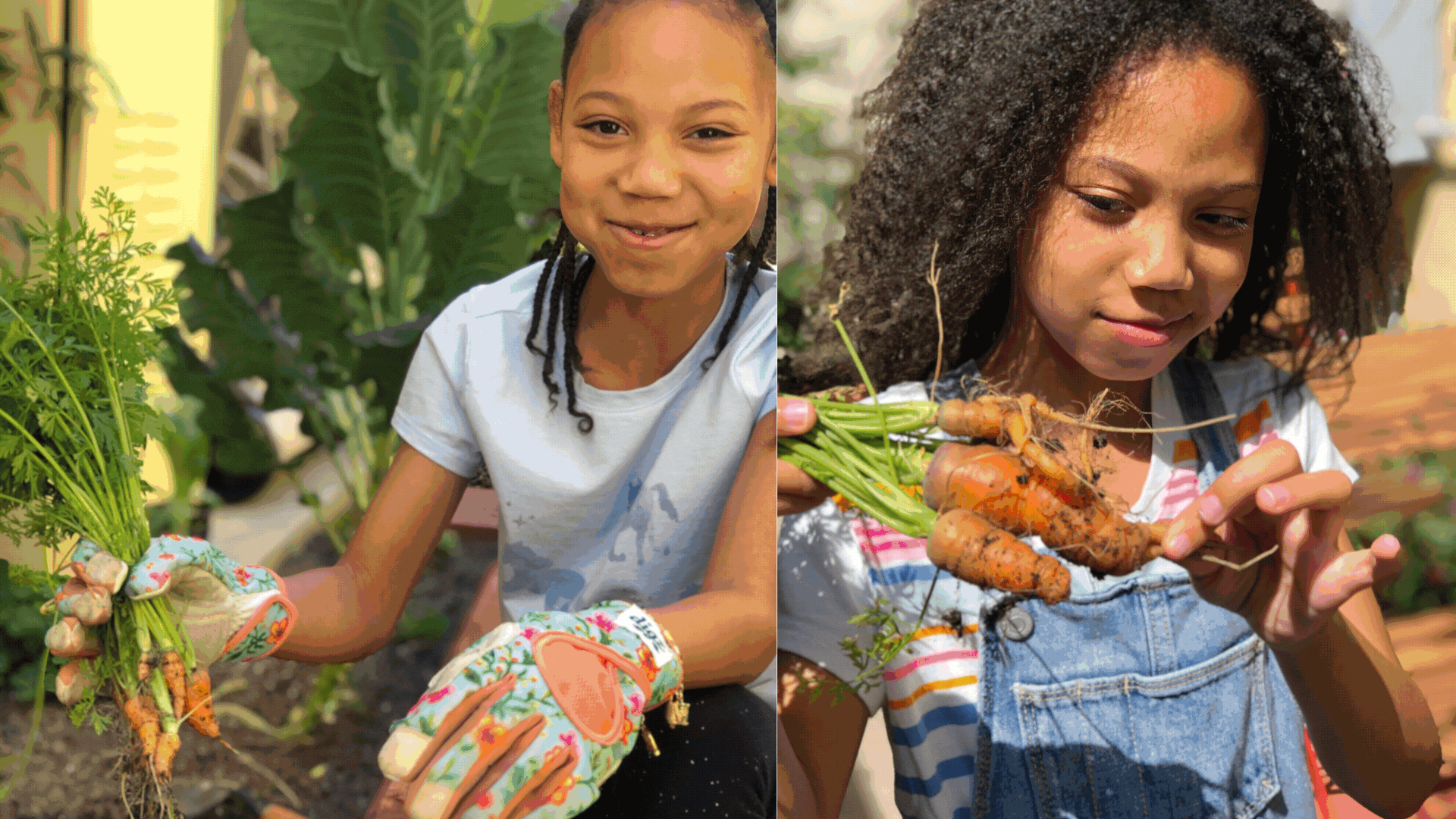the problem
Residents in “da hood” don’t have enough peaceful spaces to garden or learn about gardening. For years, there has been little investment in helping these neighborhoods create green spaces or provide gardening education.
why EVERY HOOD NEEDS A GARDEN
ACCESS TO NATURE: Many urban neighborhoods lack green spaces where people can connect with nature and enjoy fresh air.
HEALTH BENEFITS: Gardens provide access to fresh fruits and vegetables, promoting healthier eating habits and reducing diet-related health issues.
COMMUNITY BUILDING: Gardens bring neighbors together, fostering a sense of community, connection, and shared purpose.
CULTURAL CONNECTION: Gardening can help people reconnect with their cultural traditions and ancestral practices tied to the land.

HOW GARDENS HELP the HOOD
EDUCATION: They teach valuable skills like growing food, using herbs for wellness, and sustainable living practices.
CRIME REDUCTION: Green spaces are known to deter crime and create safer environments for families.
MENTAL HEALTH: Spending time in gardens reduces stress, improves mood, and promotes overall well-being.
MULTI-GENERATIONAL ENGAGEMENT: Gardens offer positive, educational activities for all ages, keeping them engaged and connected with their community.
The Urgency for gardens in the hood
The COVID-19 pandemic highlighted the critical lack of green spaces in the hood. These areas, predominantly home to Black, Hispanic, and low-income residents, have 44% less green space acreage than white neighborhoods, a disparity rooted in systemic redlining practices. This inequity creates worsening health conditions like obesity, depression, diabetes and high blood pressure.
The U.S. is facing an obesity crisis, with rates exceeding 40% across nearly all ethnicities. However, obesity is slightly higher among Black and Hispanic communities.
SOURCE: Mintel | Drug Stores - US - 2024
Studies have shown that two hours of time spent in green spaces, sometimes dubbed “forest bathing,” offer significant health benefits, such as lowering depression, obesity and blood pressure, while also raising the immune system.

Why Existing Gardens in the Hood Don’t Work
COMMUNITY GARDENS: Some neighborhoods have gardens, but they don’t last long because there’s not enough money, tools, or help from the community.
URBAN FARMING: Programs for growing food in cities sound great but can’t grow bigger because they don’t fix big problems like finding land or getting support.
UNSTABLE FUNDING: Most gardens depend on government money, which comes and goes with new government leaders, making it hard to plan.
NOT FUN OR ENGAGING: These spaces don’t offer fun activities or meet what people really need, so no one wants to join in or help out.





